When Donald Trump was elected in 2016, Liam Neupert stayed up until 1 a.m. so he could see who the winner was.
"When it was finally announced, I felt sick," says the Idaho resident, now 17. "My heart was pounding, and I began to cry uncontrollably. I felt devastated and absolutely terrified of what was to come in the next four years."
The next morning Neupert and his best friend "sat at the lunch tables mortified and destroyed. The room felt empty and dark; we were just there, talking, crying and making sure to be there for each other. That was the reason I could make it through because I knew I had someone who would listen."
He used that experience to help inform advice he'd give to other LGBTQ activists of any age, advice that belies his young age. "Please, please make sure you have a way to get your feelings out without harm to yourself or others. Whether it's talking to a friend, a parent, a therapist, or just you writing it all down to keep for yourself. It is so crucial for everyone to have someone or something that allows them to take the time and search through their feelings. Take the time to feel and take the time to express those feelings. I think that self-care is a big part of it all that people skip, but I can't emphasize enough how important it really is."
The gay, biracial (he's South Asian and white) teen activist was Idaho's state leader for the Youth Strike 4 Climate in March, a day when literally hundreds of thousands of students around the globe left their classrooms and took to the streets to demand action on climate change. The protests were held in 23 countries, from Europe to Asia to Australia, including hundreds of marches that happened in American cities.

For Neupert, the strike meant lobbying politicians, protesting at the state capitol, and passing along a message to leaders and elders alike that saving the planet is a literal necessity. It was part of #FridaysForTheFuture, a movement started by 16-year-old Swedish activist Greta Thunberg, in which kids strike every Friday to protest the lack of climate legislation.
"Thinking back to when Trump came into power," Neupert recalls, "I would have never imagined myself organizing the climate strike for Idaho and I would have never imagined the size and the impact of the end product. I was devastated and felt so unmotivated, but instead of watching the world burn around me I got up and created change. Because of that, I have seen myself and my community grow in so many different ways."
But like Emma Gonzales and David Hogg, the Parkland, Fla., survivors whose anti-gun activism galvanized America in 2018, Neupert and his peers are taking cues from early queer and trans activists as well as the peace and environmental movements. It is, at its best, an intersectional movement, especially as environmental degradation and climate change disproportionately impact people of color, and in that direct and immediate action is needed.
"One thing I believe to have in common with the early LGBTQ+ activists is that I too am fed up with the amount of injustice our legislators are showing us," says Neupert. "They show injustice to all of us by not creating policy for a Green New Deal. Not creating this policy shows they do not care about what happens with the future generations, but that they only care about their life right now. They show disrespect by not allowing the basic protections of adding the words gender identity and sexual orientation on a national scale. This protection may seem minor to some, but simply adding the words can make a world a difference for LGBTQ+ folk in currently unprotected areas."
The biggest LGBTQ fight in Idaho, of course, has been the Add the Words movement, to get state legislators to add the words sexual orientation and gender expression or identity to antidiscrimination law. He found so many political leaders in the once-purple, now incredibly red, state "believe that they can blindly disregard and not listen to their Democratic constituents."
During his time lobbying, he met with one of his Republican reps and talked a little about Add the Words.
"I told him the stories of discrimination I have faced, and I asked him to imagine that if a queer person in Boise could feel so unwelcome, just imagine the amount of fear that a queer person in a more rural area might have," Neupert recalls. "After pouring my heart trying to get him to understand the fears that the LGBTQ+ community has in our state, he just simply disregarded my words and asked us, 'Is that all? I have to get going.'"
Idaho's legislature is a combo of some good and a lot bad, the teen says. "There is the small percentage of Democratic legislators who will support us 100 percent ... and there are the Republican legislators who will skip scheduled meetings, make excuses, and some of them will even deny meeting with their constituents they don't align their personal values with."
Last session, Neupert lobbied with Planned Parenthood, "because I volunteer with their teen council, a peer-led sex ed class where teens learn comprehensive and correct sex ed and then go out and teach it to other teens in the area."
During their scheduled meeting time with one Republican legislator, the lawmaker's secretary claimed he had gone to an urgent meeting with the governor, "but when we walked out we saw him trying to sneak away. When we talked to him he said he had met with us in years past, which he hadn't, and that he really needed to go to the post office before it closed, on a national holiday."
He thinks changes are coming as long as activists stay in the fight. "One of the state's Democratic representatives who was somehow placed to work in the same side as her Republican colleagues who said that as the older, harsher Republican legislators move on past their time and the younger ones come in, they definitely have more views that will allow for more open conversation about important topics," he says. "In Idaho, we do have the uniquely terrible experience of living in a red state with a blue capital. With that, it is often hard to talk to Republican legislators about change and progression because they feel like they are being attacked and turn into a brick wall that won't do anything to help make Idaho a better place."
He says that "the only people that can change that is us ... I am making it a big part of my life to get involved. I can't just sit and watch our legislators take advantage of us, and if that means I have to demand radical action or use radical action, so be it. There is too much waiting for the world to change when the clock is ticking faster than we want it to. Our people are starting to see the effects of inadequate legislation, and I do not want to be the start of the generations who will pay for that."
He's fighting hard to make the Gem State better, and so are his Gen Z peers, whereas LGBTQ folks generations past often left the state for more liberal climes.

"You can tell that being in a Republican majority state is fuel for so many of our youth because we all feel the need for change. For us, Idaho is our home and we do not want to see this state stay in the past while other places continue to move forward. The activists in our state, especially the youth, consistently show up and make their voices heard. I would have never guessed the amount of support I have seen during some of the rallies and marches that have happened in this town. The best part of being an activist in Idaho is that so many people in the community are some of the most amazing people I have ever met."
He says one of the biggest protests last year in Boise was the March for Our Lives rally for gun control.
"The thing that I will always remember is how one of the high schools that is within walking distance all left at the same time, so all of us who were already there got to see a large mass of people turn the corner chanting. It was such a powerful moment that I remember and use to fuel my work."
It's the activist's own high school that helped position him to be able to lead a statewide strike. Neupert, who went vegetarian three years ago after watching a documentary on industrial farming practices, then later became vegan soon after, is a fashion buff, but an activist one at that.
"After cutting out meat I began to look into the other ways that my consumption was affecting the environment. I started looking into fast fashion and that led to a huge shift in me. I used to shop at H & M and Urban Outfitters all the time, but after looking more into their carbon footprint and the extremely unkempt facilities that these people had to work in, I knew had to stop supporting them. I read stories about the Rana Plaza factory collapse of 2013 in Bangladesh that killed more than 1,100 people; I couldn't believe that no one knew that all these people were dying just so people in privileged countries could have the next trendy shirt for a month only for it to fall apart and be thrown away. The worst part is almost every big fashion company out there uses the exact same unethical methods to create clothes; they just do a better job at hiding it. So after that, I cut out fast fashion and began to shop second-hand, vintage, and at last resort sustainable brands who focus on being transparent about their practices."
He says, "Every day I try to consume a little less. I try to not buy new things because I know we already have so much on this earth. I do my part to compost so that my food can actually biodegrade and not just go to landfill and create even more greenhouse gas emissions. When I go out to buy something I always ask myself a few questions. Will I use this enough to make it worth the cost? When doing this I genuinely envision how many times I can see myself wearing or using the item. What are the environmental impacts of me buying this? If it's something truly new, which is rare for me these days, I really focus on this question and try and make sure that I really feel like I can stand behind who I am buying from. Lastly, I ask, Is this something I really need/feel it can better me in any way? I do this so I can really weigh if I truly do need it, or if it's a luxury item, I try to make sure that it will actually have use in my life."
His parents have been incredibly supportive. "I knew that I would have to step up and cook my own meals because of the switch to veganism, but my parents have been amazing at holding me accountable, and if I don't have the time in my schedule, my parents will cave and cook me a meal. For my consumption habits, I think it's for sure a pro to them; it's less of a cost to them because I'm not going out shopping every month and I have taken the time to get a job and mostly rely on myself to pay for the things I buy, which also allows you to see the true cost of what you are purchasing."
His high school, One Stone, has helped influence how he shapes his moral compass. One Stone is a nonprofit school that has a focus on student voice and leadership. It started in 2008 as a program for experiential service projects which then grew and became a school in 2016.
Neupert is in his second year (the junior equivalent) and says, "I have truly seen myself grown in so many different ways. One Stone has really allowed me to explore the different facets of my passions as well as use my time to explore more creative and unique pathways that I wouldn't get in a traditional setting."
One Stone doesn't have traditional grades, and students are given feedback which they also share with their coaches (a.k.a. teachers). They then use an assessment-based approach for their scores, which grow over their time at the school.
"I personally have noticed that as a student I find myself not getting consumed by how I am doing on my class work, but I am really allowing myself to explore the different ways I work and want to better work in the world. The big thing I've really seen open up in my life during my time at One Stone is my mindfulness. Most people would define their path to mindfulness in a totally different way, but I've grown in a way where I am mindfully focusing more on how I am consuming and impacting our planet."
He says that beyond that, he's been able to dive deeper into his environmental activism by creating his own course "where I work on writing posts to educate people on small ways to live their lives more sustainable. Through the process, my coaches also worked with me to allow me time to work on planning for the climate strike and responding to emails and interviews related to that. One Stone also allows for a student and coach dynamic that focuses more on bonds -- one of my coaches is also one of my best friends -- and it allows for a special connection where everyone can learn from each other and we are able to share our ideas and ways we want to explore our passions."
Ever intersectional, the vegan climate change activist says took it upon himself to learn a lot about the Stonewall Inn riots "because the history of the gay liberation movements is extremely important for all of us to know and translate into our own work. I try and use the passion and fire that our family of activists had so that together we can all fight for a future they would have wanted. It's sad to say, but the truth is the fight never stops, so we have to continue in the footsteps of the amazing people who were able to take the first step towards justice."
"One thing I believe to have in common with the early LGBTQ+ activists is that I too am fed up with the amount of injustice our legislators are showing us," he admits. "The passion I have for making our home a better place is how I connect myself to the LGBTQ+ activists of our past. Those people took daring steps to get us to where we are today, and I hope that I can do the same for the generations to come."

And unlike Stonewall, his generation's revolution will be socialized. "With every protest more people will become aware of the movement and that can lead to big change. I do believe that if we keep pushing and keep fighting for climate justice people are bound to hear and bound to react. People aren't always going to believe us, but unlike movements in the past, we have social media and the internet to connect us and make us one big team. The power that the internet gives us activists is that we know we are not alone and we are all going to stick together until we see change. Our power is so much more than we could have ever imagined; there are so many people who believe in us and so much power that we can use from the people before us. Activism can seem like a never-ending task at times, but that just shows how passionate and engaged we truly are."
He has hopes for his future, for the planet, for the rights of all of us, he says, Donald Trump be damned.
"There are so many things I want to tell everyone in the times when you feel betrayed and unwanted by the Trump administration. I know that these times can often feel like the end of hope for all of us, but just trust me in saying that I know things are on their way to change. As more young people turn 18, it means more passionate and active citizens are making their way to the polls. It also means that some of the older folk who don't want us to [make a] better country are moving past their time of voting."
He says another important thing to remember is that it's almost over. "We have made it this far into Trump's term and with all of the terrible things he has done, we can all feel excited to see that the madness of the 2020 elections will soon be ramping up. With the midterms sending a record-breaking amount of people to the polls, I do trust that we as a country can make a decision that will send us in a direction of more inclusivity and better policies."
Even in his ultra-red state, Neupert says, getting involved and demanding action allows you to actually make a direct impact even if you aren't old enough to vote. Trying to get our legislators to listen has been really hard ... but during the climate strike, we had a very pro-climate action representative, Ilana Rubel, come to talk, and she was joined by Rep. Sue Chew. They both came to talk to me about how excited they were to see that we were getting involved and making a difference. During my time with the Fridays for Future strikes, I was able to talk to Rep. Brian Ellis, who talked to me about how there was talk about looking into an environmental action bill that may be brought up in the 2020 session."
About one out of every four people in Idaho live in Boise, according to World Population Review, and nearly 40 percent live in the surrounding Treasure Valley. Boise is more diverse than the rest of the state, which might be why it's where Neupert and his peers are seeing their first successes around their climate activism.
The city of Boise, he says, has committed to 100 percent renewable energy by 2035, and Idaho Power -- which supplies electricity to 95 percent of Idaho and 5 percent of Oregon residents -- promises to have 100 percent clean, renewable energy by 2045.
In a city where wagon wheel ruts can still be seen along the old Oregon Trail, having commitment to change happening in the next two decades might be as good as it gets.
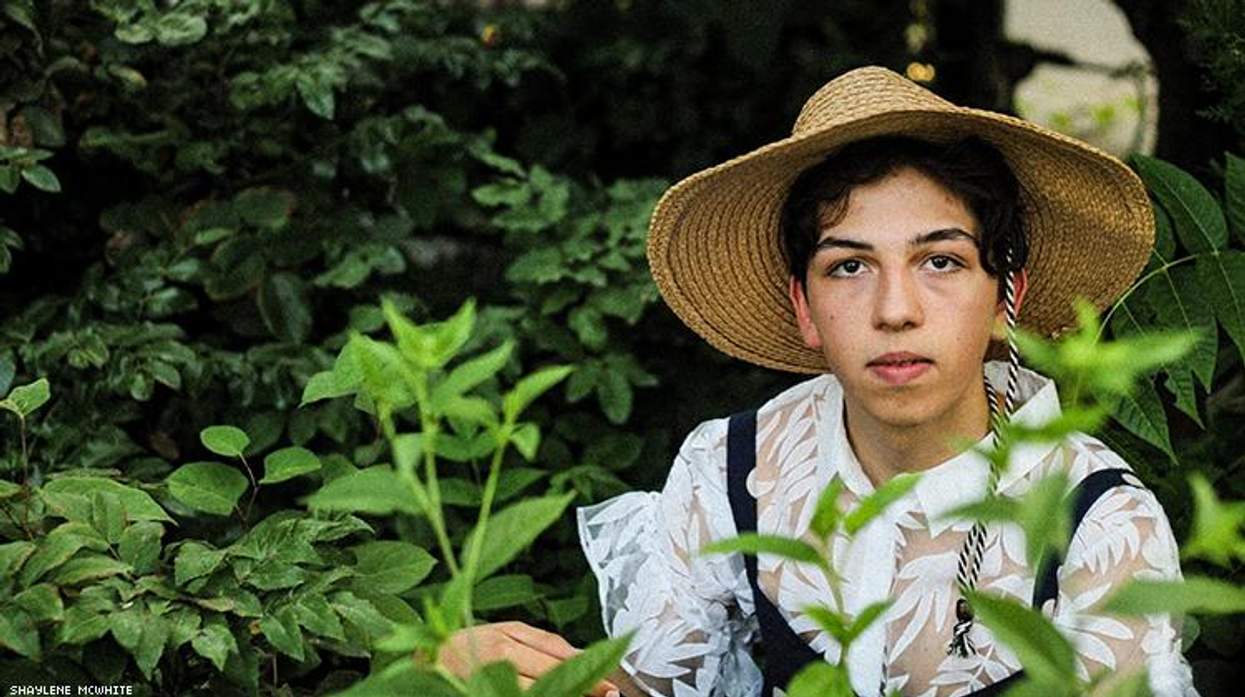

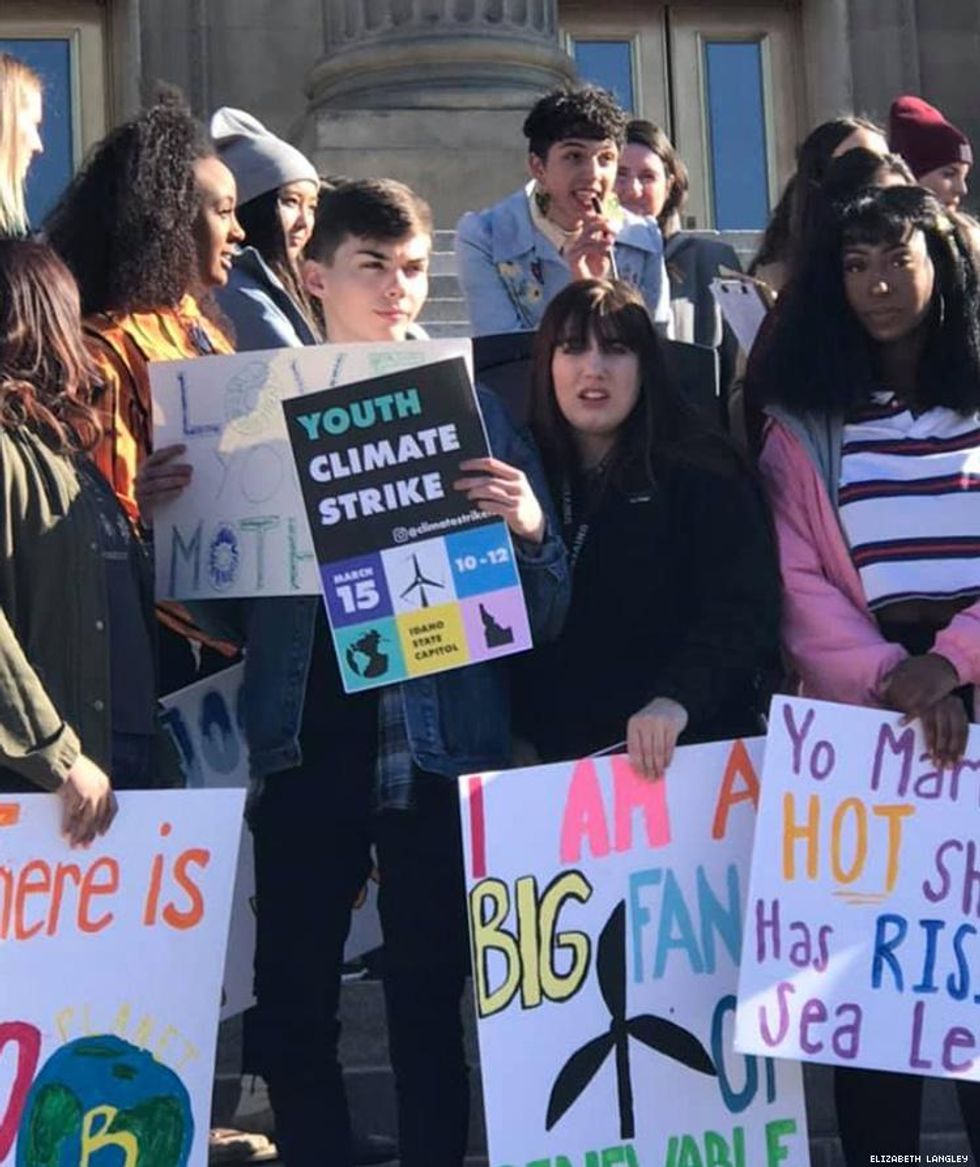
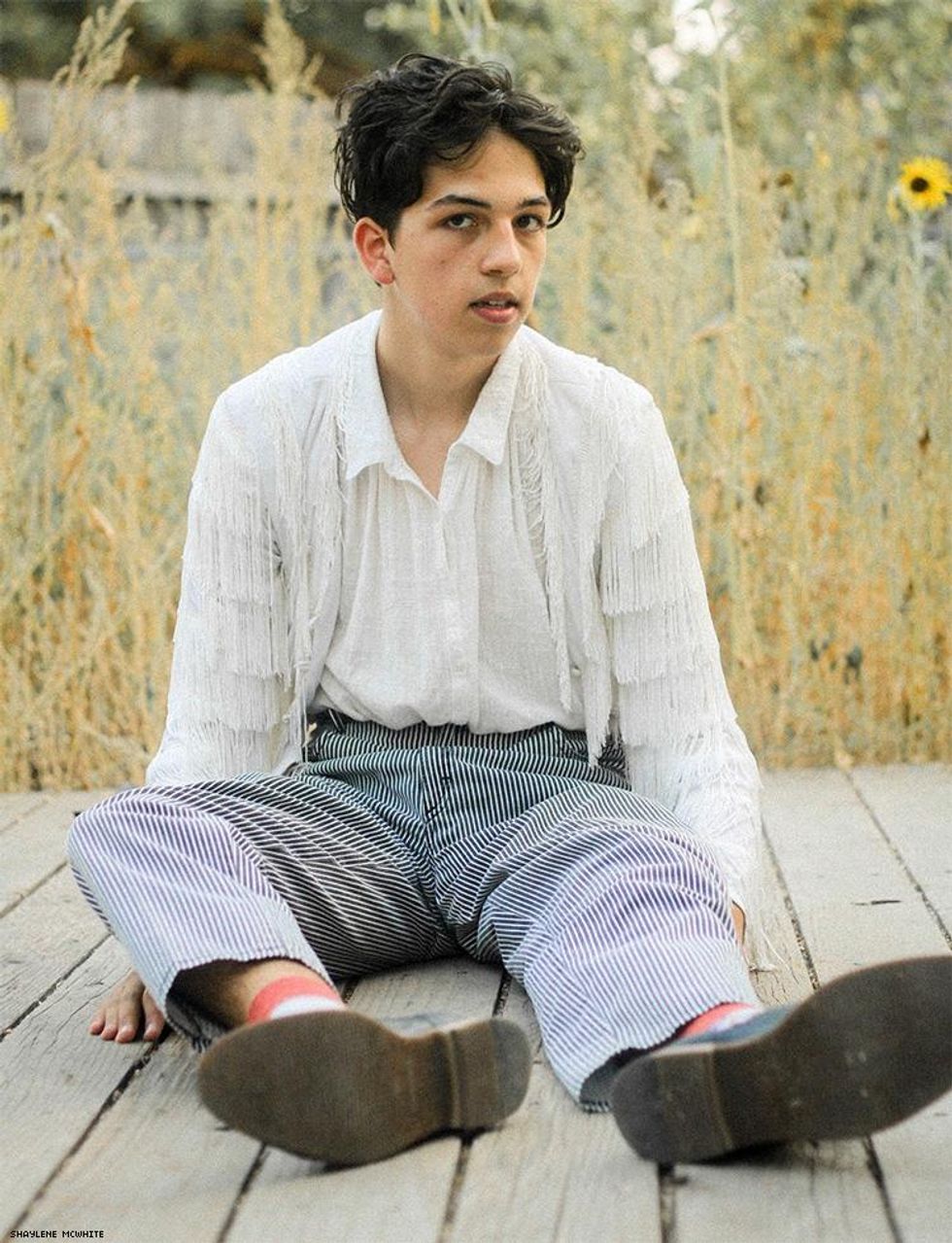
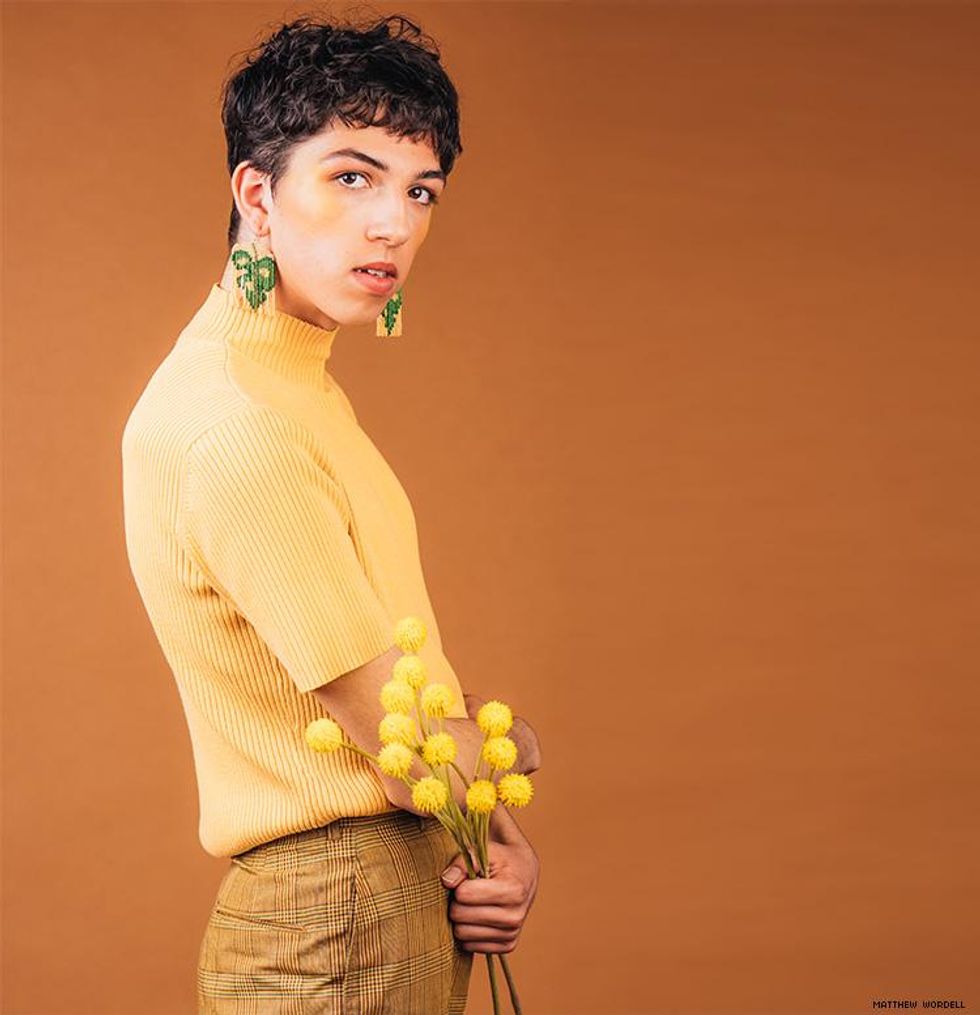


















































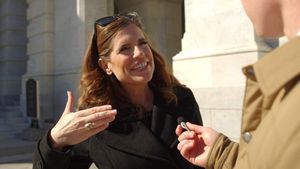









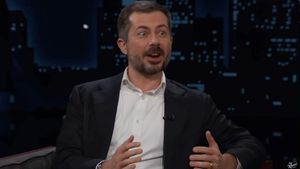






Charlie Kirk DID say stoning gay people was the 'perfect law' — and these other heinous quotes